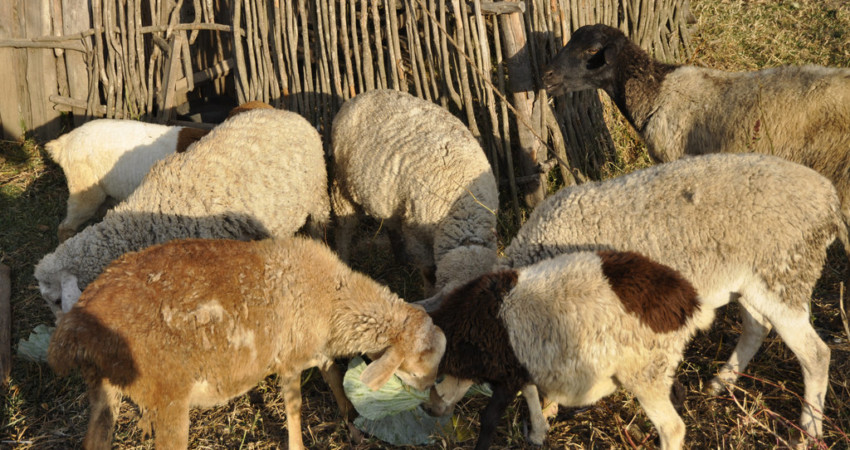

Supplementary feeding is the additional supply of feed containing energy, protein or vitamins and minerals to grazing sheep that may be lacking in the pasture. It is important to ensure that the whole diet of the animal, including supplement and pasture, is balanced.Supplementary feeding can be used to meet the nutritional needs of sheep at varying stages of their life, to increase their consumption of dry pasture, specific nutrients, or to improve growth rate, fertility, meat production or wool quality. Nutritional needs of sheep vary depending on age, size, pregnancy and lactation.
Feeding supplements has benefits and costs. If used effectively to overcome a nutritional deficiency or meet additional nutritional needs, the result can be healthy sheep that grow, reproduce, rear offspring and produce quality wool. However, supplementation can be expensive, time consuming and, if done incorrectly, can have severe impacts on the health of the sheep, even resulting in death.This guide explains when and how to use supplementary feeding to improve production and keep sheep farms viable in dry season or drought. It will also help you decide when supplementation is likely to be cost-effective.
Sheep get their energy, protein, vitamins and minerals from the pasture or through supplemental feed. A limited supply of nutrients in the sheep’s diet can lead to:
weight loss, low fertility, high mortality, increased risk of disease, poor wool growth.
Sheep need a balanced diet containing energy (fat and carbohydrates), protein, vitamins, minerals and water. Nutritional needs vary greatly, depending on the size, age and physiological status of the sheep. For example:
– larger and older sheep sometimes need more nutrients than younger and smaller ones.
– lactating or pregnant sheep need more nutrients than dry animals
– young, growing, pregnant or lactating animals sometimes need more protein than older, empty or dry animals
– in some cases, lactating sheep need more phosphorus than non-lactating sheep.
The energy component of a sheep’s diet is the major driver of its performance. Sheep get their energy from pasture, hay, grains and soil seeds. If sheep are not getting enough energy there will be a decrease in wool and meat production and reproduction, and an increase in mortality and disease.When dietary protein levels become low, sheep cannot maintain weight and they start to mobilise body tissues to make up the shortfall in protein. Low levels of protein reduce weaner growth rates, conception, pregnancy and lactation in breeding ewes, and productivity in general.
Major minerals that sheep need include phosphorus, sulphur and calcium. Small amounts of these minerals are needed to ensure sheep remain strong, healthy and produce good wool. Sheep can get minerals from water supply and various mineral supplements if necessary.Although vitamin deficiencies rarely occur in sheep, it’s important to make sure they receive enough of the right vitamins to remain healthy, strong and productive.
The most important are vitamin A, D, E, and the B group. Sheep can get vitamin A and vitamin E from green plant matter, hay and grain, and vitamin D from sunlight and fresh and dry feed.Newborn lambs receive B complex vitamins from milk, and once weaned an active microbial population in the rumen will then usually make sufficient B vitamins to meet nutritional requirements.Water is one of the most important daily requirements of sheep. They need between 2.5-18L per day. Water should be clean and contain minimal chemicals. Sheep generally consume 2-3 times the amount of water to dry feed, and if receiving high salt supplements may need more.
 Contact Jaguza Support
Contact Jaguza Support